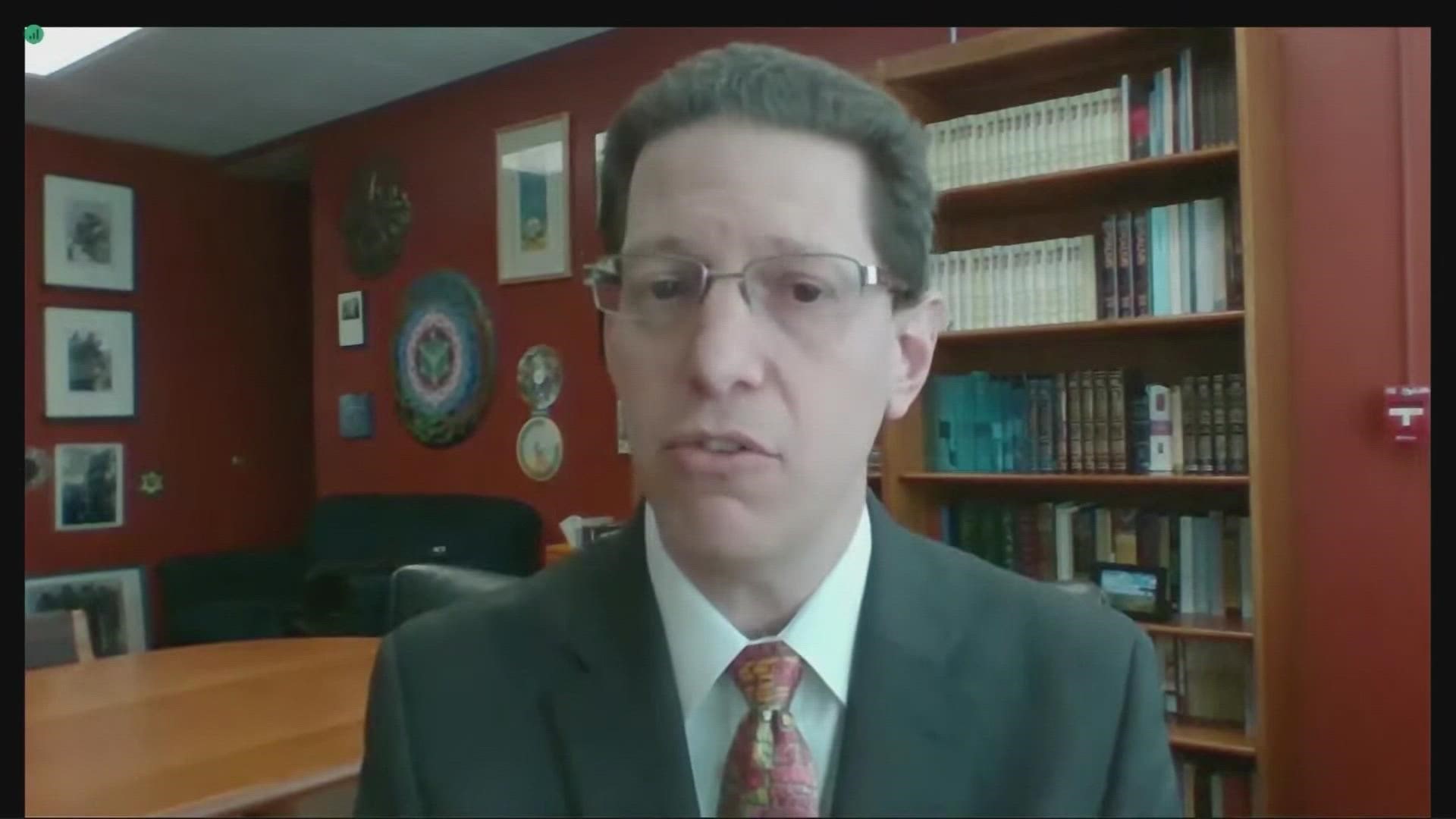COLLEYVILLE, Texas — Rabbi Charlie Cytron-Walker, who survived the hostage situation at his Colleyville synagogue last month, pleaded with Congressional leaders Tuesday for more funding toward security for houses of worship.
Cytron-Walker, in a U.S. House committee hearing, also testified about the hostage-taker's targeted remarks toward Jewish people and how his congregation is recovering in the wake of the attack.
The hearing was over the Federal Emergency Management Agency's (FEMA) Nonprofit Security Grant Program, which provides funds to nonprofit organizations, such as houses of worship, that are "at high risk of terrorist attack."
Organizations have to apply to the program and be accepted to receive the funding.
Cytron-Walker and others at the hearing Tuesday encouraged more funding and awareness about the grant application process.
"We need that sense of security," Cytron-Walker, the rabbi at Congregation Beth Israel, testified. "We need these grants. We need these programs. We also need to work together to change that overall reality [of violence in houses of worship]. What we're going through now, I don't think it's sustainable."
Cytron-Walker has credited his synagogue's previous security training with helping him and three other men safely escape the hostage situation.
Cytron-Walker again on Tuesday reiterated that the previous training helped them.
Cytron-Walker testified that the hostage-taker, who was later identified by authorities as Malik Faisal Akram, was "very focused on this idea that Jews controlled the world, that they pulled the strings."
Cytron-Walker said Akram wanted Cytron-Walker to call "the chief rabbi of America" and have a person released from prison.
"That was his singular focus," Cytron-Walker said. "That was Jews control the world. That was reality for him. He believed that 100%, that America would care more about Jews than anybody else."
One of the men was released several hours after the hostage situation started. Cytron-Walker and two others remained inside for several more hours
Toward the end, Akram became more agitated, Cytron-Walker has said, and he "wasn't getting what he wanted."
Cytron-Walker waited until Akram "wasn't in a good position," and threw a chair toward him, telling the other two men to flee the synagogue. All three hostages escaped, and authorities entered the synagogue, where Akram was killed.
Cytron-Walker on Tuesday said the synagogue's security training started six years ago. He testified that he worries other congregations are just beginning that process.
"Right now there are far too many houses of worship that have developed plans and are counting on the Nonprofit Security Grant Program to put them in place," Cytron-Walker said. "And help them feel more secure in their spiritual home. Right now there are far too many houses of worship that won't get the support they need, especially small congregations."
At the same time, Cytron-Walker said it's partly on congregation members to be prepared. Cytron-Walker talked about his synagogue's close relationship with local law enforcement and how he was in communication with Colleyville's police chief during the hostage situation.
"A community has to feel the need and the desire [for security training]," Cytron-Walker said. "Unfortunately, a lot more people feel that as it hits closer to home. What happened to us is the most recent horrible thing. But things have been happening for years. When does that wake-up call happen?"
Watch the full hearing here:

